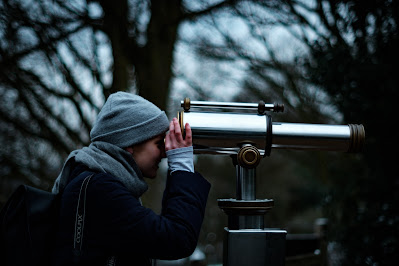Lost...and found
A post a day in May 2/31
In our house, things are routinely lost — misplaced, if you will, put somewhere, location forgotten when next needed. It is aggravating and annoying. And entirely self-inflicted, making it embarrassing, too.
“Aaargh! I can’t find my glasses and I can’t see them without them on. Where are they?”
“They're right over there, on the table, cleverly camouflaged against the pattern of the tablecloth. Exactly where you left them!”
OK, that incident is not so bad, as it’s perfectly reasonable to not be able to see one’s spectacles without them on one’s face.
But how about this one?
It starts benignly with, “Have you seen my keys?” and moves to an increasingly frustrated and fruitless search in all the logical places — the front hall table, yesterday’s jeans’ pockets, the backpack, etc. Nothing. Nada. Nix.
Then, the other person suggests looking in less logical places, like, say, the sunroom desk or the shelf in the garage by the light switch or maybe, even, the laundry area. These are all, clearly, illogical places for a set of keys, and that is precisely why one should look there: The item is lost, is not where it should be and, therefore, might be, precisely, in an illogical spot. Makes sense, no? However, the frequent reply is, “There is no way I would have put the keys there!” Right. Sure. But, that is where they end up being found: the shelf in the garage, by the light switch. So annoying for the loser, so satisfying for the finder — usually not the same person, of course.
The experts have an explanation for why we lose things: According to Daniel Schacter, director of Harvard’s Schacter Memory Lab, it’s “a breakdown at the interface of attention and memory, where we’re focused on something other than the object we’re going to lose. [We don’t] encode the information into memory about where we’ve put the object, because we have other concerns occupying our attention.”
In other words, lack of focus, aka mindlessness. We all know it, have it, practice it. That is normal. What isn’t normal is, once lost, to expect the item to be where it, logically, should be. It’s not there or it wouldn’t be lost! You have to look in the more unexpected places, because that’s likely where it is.
The internet offers endless tips for how to best find things you’ve misplaced, but they all boil down to, essentially, the same advice your mother probably gave you: Look where you think you lost the item. If it’s not there, keep looking high and low, especially where you don’t think it could possibly be. Widen the search area until you trip over the damn thing!
According to a 3,000-person study in Britain, an average person loses up to nine items a day (with keys being the most lost item), and they spend up to 15 minutes searching for them. Multiply that over a lifetime — or even just a week — and that’s a lot of lost time, which, no matter how hard we look, even in all the most unexpected places, we will never find again.
———
Land acknowledgement: I respectfully recognize that I live on the original lands of Anishinaabe, Cree, Oji-Cree, Dakota and Dene peoples, and on the homeland of the Métis Nation.
Photo by Miikka Luotio on Unsplash




By age 3 I had trained Amy to help me find my keys. She plans to bury my house key with me when the time comes
ReplyDeleteI found my keys still in the door once.
ReplyDeleteI have, too, Barbara!
Delete